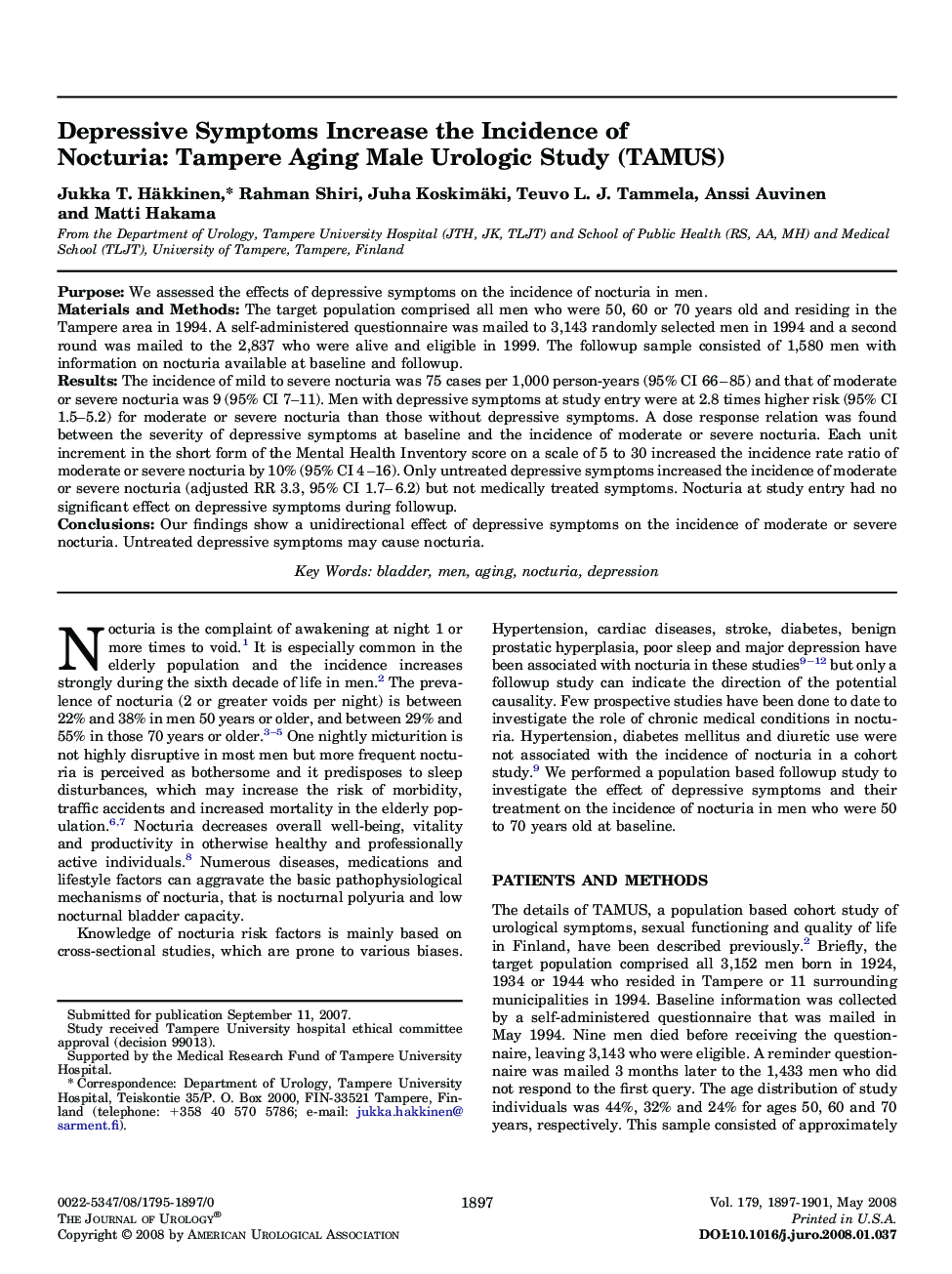| Article ID | Journal | Published Year | Pages | File Type |
|---|---|---|---|---|
| 3877523 | The Journal of Urology | 2008 | 5 Pages |
PurposeWe assessed the effects of depressive symptoms on the incidence of nocturia in men.Materials and MethodsThe target population comprised all men who were 50, 60 or 70 years old and residing in the Tampere area in 1994. A self-administered questionnaire was mailed to 3,143 randomly selected men in 1994 and a second round was mailed to the 2,837 who were alive and eligible in 1999. The followup sample consisted of 1,580 men with information on nocturia available at baseline and followup.ResultsThe incidence of mild to severe nocturia was 75 cases per 1,000 person-years (95% CI 66–85) and that of moderate or severe nocturia was 9 (95% CI 7–11). Men with depressive symptoms at study entry were at 2.8 times higher risk (95% CI 1.5–5.2) for moderate or severe nocturia than those without depressive symptoms. A dose response relation was found between the severity of depressive symptoms at baseline and the incidence of moderate or severe nocturia. Each unit increment in the short form of the Mental Health Inventory score on a scale of 5 to 30 increased the incidence rate ratio of moderate or severe nocturia by 10% (95% CI 4–16). Only untreated depressive symptoms increased the incidence of moderate or severe nocturia (adjusted RR 3.3, 95% CI 1.7–6.2) but not medically treated symptoms. Nocturia at study entry had no significant effect on depressive symptoms during followup.ConclusionsOur findings show a unidirectional effect of depressive symptoms on the incidence of moderate or severe nocturia. Untreated depressive symptoms may cause nocturia.
